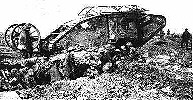|

Interlude On the eleventh hour of the eleventh day of the eleventh month, 1918, The Great World War came to an end. The world was changed for the way it had been in August, 4 years earlier. |
|
|

Interlude On the eleventh hour of the eleventh day of the eleventh month, 1918, The Great World War came to an end. The world was changed for the way it had been in August, 4 years earlier. |
|
|
England: World leader in navel power, challenged by Germany and the U.S. but holding on. Not much land but lots of colonies. France: A country in the middle. A large army, she had fought England and everyone else for years. Had a peace forced on her by the victorious nations and had done fairly well under it. Germany: Became a country in the last century. Was just catching up with england, France and the others. Japan: Took up western technology when she saw what it could do. Tried to keep other parts of of her country as they had been. She was kept out of most of the China pot by the European and American powers. She had surprised the world by beating the Russians in a navel battle in 1904 and was not entering the arms race as other countries had. Russia: Like most of Europe, a peasant country a the start of the last century, she was lagging behind modernization by the end of the 19th century and on the verge of collapse by 1914. The Great War The Great war started as most European wars had for the last 100 years. It ended in a bloody stalemate with no clear victor. Germany was forced to sigh an armistice, rather then surrender (This is very important, because it set up thinking that was to come of age at the end of World War two). America came into the war late, when a ship flying the American Flag (some say carrying guns and ammunition to England) was torpedoed off the Irish cost by a German U boat. We did not want to fight in a European war (a second point that should be remembered). It was called "The war to end all wars." It had been to bloody to even think of repeating. The actual treaty was worked out in 1919 at Versailles. It left Germany almost as she had been before the war, except for two things. A very small army and navy and repayment of War costs to France, Briton and the other allies. (America loaned the money To Germany until the depression.) Germany, on the other hand, retained it's officer corps, hidden from view but under the development or Hans von Seeckt. (who, despite the Treaties of Versailles and with the help of the Soviet Union, planted the seeds of the Wearmacht.) France had by far the largest Standing army and was in the best position to face a challenge from Germany, instead built the Maginot Line and started to reduce her army. The start of the '30 had the world Governments
more worried
about money than war. The world depression plaid into the hands
of the
Nazi party and it's insane leaders. While other countries cut
back on military
spending, Germany began to re-arm.
1931 - Japan invaded Manchuria. America, has no means of stopping her, except through economic pressures. 1933 - FDR and Adolf Hitler both take office. 1935- Hitler announces German re-armament and the birth of the new German air force, the Luftwaffe. This is the first opportunity for the world to stop Hitler. The League of nations do nothing. Nor does any nation. 1936- civil war in Spain. a test for new weapons. We're well on our way to war.
|